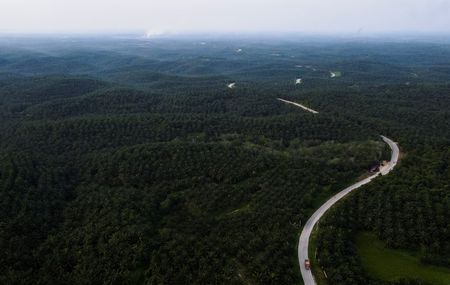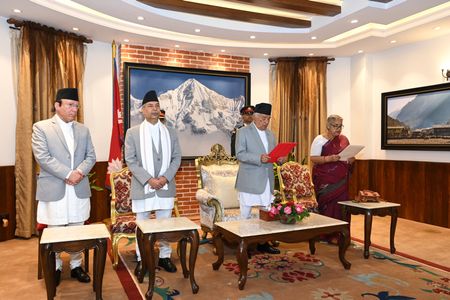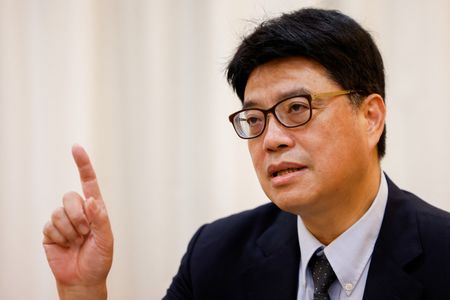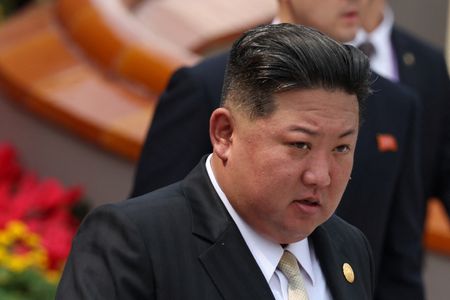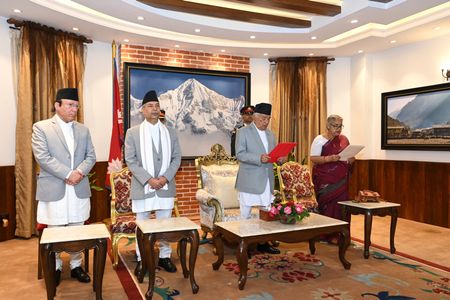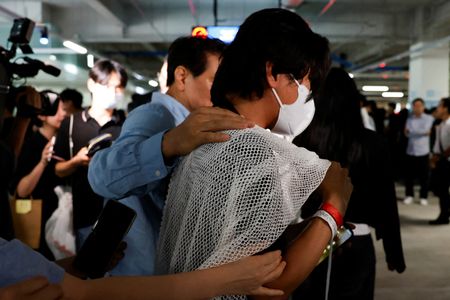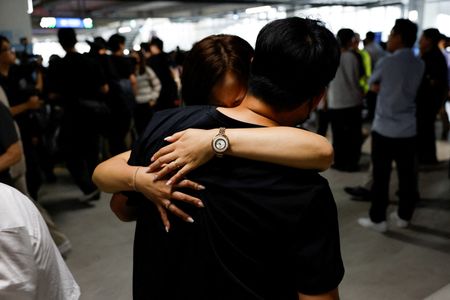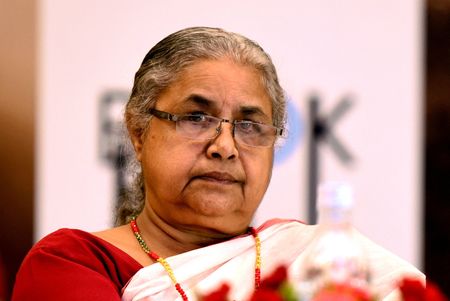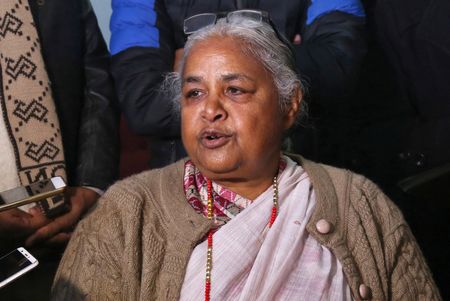JAKARTA (Reuters) -Indonesian authorities arrested three judges who acquitted three palm oil companies of charges of corruption in obtaining export permits, an official said on Monday, following the arrest of a local court’s chief judge on bribery charges in the same matter.
A court last month acquitted the three companies – Wilmar Group, Musim Mas Group, and North Sumatra-based Permata Hijau Group – of charges of misconduct in obtaining export permits in 2022.
The three judges who made the ruling were arrested on Sunday night, a spokesperson for the Attorney General’s Office Harli Siregar told Reuters in a text message on Monday.
On Saturday, prosecutors arrested Muhammad Arif Nuryanta, chief judge of South Jakarta district court. He was allegedly paid 60 billion rupiah ($3.57 million) to arrange for a favourable verdict by two lawyers for the companies, Siregar said in a statement, adding that $1.07 million was then allegedly paid to the three other judges.
“The bribe was given so that the judges would rule that it’s not a crime,” Siregar said, adding that a court clerk and two lawyers had also been arrested.
Reuters could not immediately reach the three judges or their lawyers for comment.
Siregar said the Attorney General’s Office had filed an appeal against the court’s March acquittal of the companies.
Indonesia’s Supreme Court said the judges would be suspended and eventually fired if found guilty in court, according to Yanto, the court’s spokesperson who goes by one name.
Wilmar International Limited said on Monday that investigations have not involved the Wilmar group or any of its employees “to the best of its knowledge.”
“We believe we are not guilty of the charges as our actions during that period to increase the supply of palm oil to the market, despite the additional cost incurred, was intended to help the government improve domestic supplies and reduce prices,” the company said.
Musim Mas Group and Permata Hijau Group did not immediately respond to a request for comments.
Nuryanta was the deputy chief of the court when the verdict was announced. He did not hear the case directly.
Indonesia, which accounts for about 60% of global palm oil supply, imposed severe export measures in 2022, including a three-week ban on shipments, in an attempt to rein in soaring prices of local cooking oil.
When the corruption charges were first brought against the companies, prosecutors were seeking fines and payments of up to 11 trillion rupiah.
($1 = 16,765.0000 rupiah)
(Reporting by Ananda Teresia; editing by Gibran Peshimam, Raju Gopalakrishnan and Kate Mayberry)

